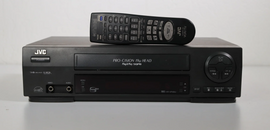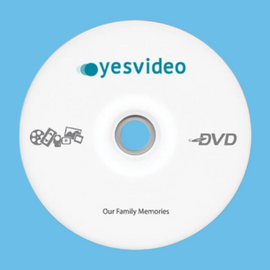
In the age of digital streaming and cloud storage, it's easy to forget the physical media that once dominated our home entertainment collections. VHS tapes, in particular, were a staple of many households and served as the primary means of recording and storing cherished memories. However, as these tapes age and deteriorate, they become prone to a hidden menace that can wreak havoc on both the tapes themselves and the precious content stored within: VHS mold.
VHS mold is a type of fungus that can grow on the surface of the magnetic tape found within VHS cassettes. Like any other type of mold, it thrives in warm, moist environments and can spread quickly under the right conditions. Left unchecked, VHS mold can cause severe damage to the tapes, rendering them unplayable and potentially causing the loss of the memories they hold. Moreover, it can also pose a threat to the health of individuals who come into contact with the infected tapes.
In this article, we will explore the causes of VHS mold, how to identify it, the dangers it poses, and what can be done to mitigate its effects. By understanding the risks and taking appropriate precautions, you can protect your treasured home movie collection from this insidious foe.

What Causes VHS Mold?
There are several factors that can contribute to the development of VHS mold. The primary culprit is humidity, as mold thrives in damp environments. When VHS tapes are stored in areas with high humidity levels, such as basements, attics, or garages, the risk of mold growth increases significantly. Additionally, fluctuations in temperature can cause condensation to form within the tape's casing, providing the perfect breeding ground for mold.
Another contributing factor is poor storage conditions. If VHS tapes are not stored properly “ for example, if they are stacked horizontally, placed in direct sunlight, or subjected to dust and dirt “ they become more susceptible to mold growth. Furthermore, VHS tapes that have been subjected to water damage, either through flooding or exposure to moisture, are at an increased risk of developing mold.
Finally, the age of the tapes themselves plays a role in the formation of VHS mold. As tapes deteriorate over time, the magnetic particles that make up the tape's surface can break down and become more vulnerable to mold growth. This is particularly problematic for older tapes that may have been stored in less-than-ideal conditions for many years.

Signs of Mold in Your VHS Collection
Detecting mold in your VHS collection can be challenging, as it often grows within the tape's casing and may not be immediately visible. However, there are several signs to look for that can indicate the presence of mold:
- A musty, earthy smell emanating from the tapes or their storage area. This is often the first indication that mold may be present.
- Visible mold growth on the exterior of the tape's casing, which may appear as black, white, green, or blue spots or streaks.
- Discoloration or staining of the tape's label or casing, which can be caused by mold growth beneath the surface.
- Warping or distortion of the tape's casing, which can result from the expansion of mold within the cassette.
- Tape playback issues, such as poor image quality, sound distortion, or the inability to play the tape at all. While these issues can also be caused by other factors, they may indicate the presence of mold on the magnetic tape itself.
If you observe any of these signs, it's crucial to take action immediately to prevent the mold from spreading to other tapes in your collection and causing further damage.

The Dangers of VHS Mold Damage
The presence of mold in your VHS collection poses several risks, both to the tapes themselves and to the health of those who come into contact with them. As mold grows on the magnetic tape, it can cause the tape's surface to deteriorate, leading to a loss of image and sound quality. In extreme cases, the mold can render the tape unplayable, resulting in the permanent loss of the memories stored within.
In addition to the damage caused to the tapes, VHS mold can also pose a threat to the health of individuals who handle the infected tapes. Mold can cause allergic reactions, respiratory issues, and other health problems, especially in individuals with compromised immune systems or pre-existing mold allergies. Handling moldy tapes can also cause the mold spores to become airborne, potentially leading to the spread of mold throughout your home or storage area.
VHS mold not only affects the individual tapes it grows on but can also spread throughout your entire collection if not addressed promptly. Mold spores can easily travel through the air or be transferred from one tape to another through contact, leading to the rapid proliferation of mold throughout your home movie collection. This can have devastating consequences for your cherished memories, as the mold can cause irreversible damage to the tapes and the content stored within. Furthermore, the presence of mold can make it difficult or even impossible to digitize your VHS tapes, as the mold can interfere with the transfer process and compromise the quality of the digital files.
In addition to the damage it can cause to your tapes, the spread of VHS mold throughout your collection can also pose a health risk to your family and loved ones. As mentioned earlier, mold exposure can lead to respiratory issues and other health problems, making it crucial to address the issue as quickly and effectively as possible.

Is the Damage Caused by Mold Permanent?
Unfortunately, once mold has taken hold of a VHS tape, it can be challenging to salvage the tape and the content stored within. While it may be possible to remove the mold and clean the tape, doing so often involves the use of harsh chemicals and specialized equipment that can cause further damage to the tape's delicate magnetic surface. Moreover, even if the mold is successfully removed, the damage it has caused may already be irreversible. The deterioration of the tape's surface can result in a loss of image and sound quality that cannot be restored, leaving the memories stored within the tape permanently compromised.
In some cases, it may still be possible to digitize the affected tapes and salvage some of the content. However, this process can be costly and time-consuming, and the quality of the digitized files may be significantly lower than that of the original tapes due to the damage caused by the mold.

When to Consult a Professional for VHS Mold Removal
If you suspect that your VHS collection has been affected by mold, it's essential to consult a professional who specializes in mold remediation and VHS tape restoration as soon as possible. These experts have the knowledge, experience, and equipment necessary to safely and effectively remove mold from your tapes and, in some cases, restore the tapes to a playable condition.
Attempting to clean moldy tapes yourself can be dangerous, as the mold spores can become airborne and cause health issues for you and your family. Furthermore, improper cleaning techniques can result in further damage to the tapes, making it even more challenging to salvage the content stored within.
By acting quickly and seeking the help of a professional, you can minimize the damage caused by VHS mold and protect your cherished home movie collection for future generations to enjoy.
VHS mold is a hidden threat that can cause severe damage to your home movie collection and pose significant health risks to those who come into contact with the affected tapes. By understanding the causes of mold growth, recognizing the signs of mold in your VHS collection, and taking appropriate precautions, you can protect your treasured memories from this insidious foe. And, if you do find yourself faced with a mold-infested collection, don't hesitate to seek the help of a professional to ensure the safe and effective removal of the mold and the preservation of your precious memories.

